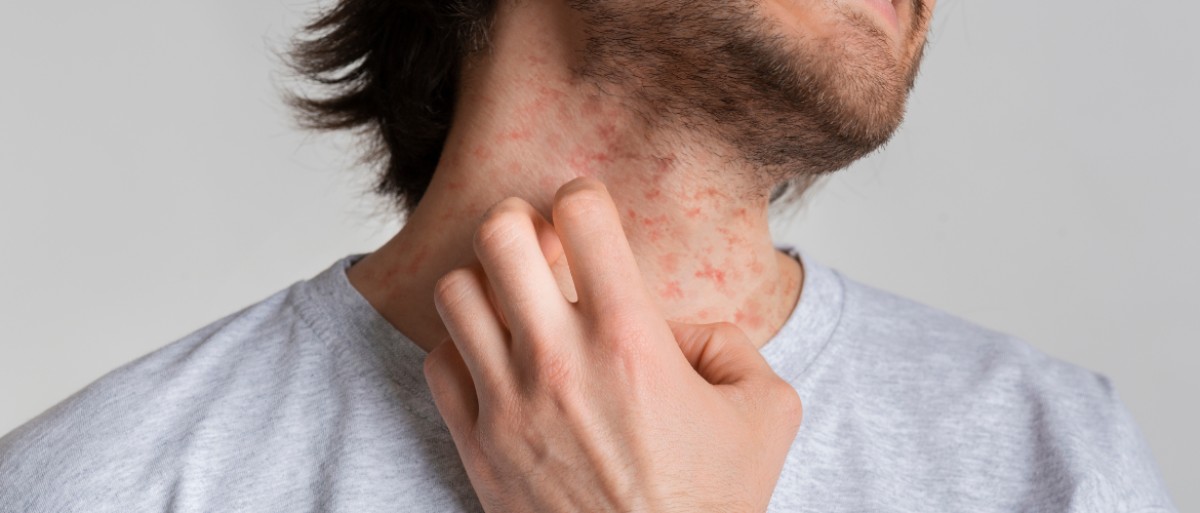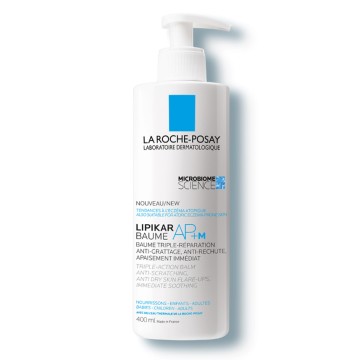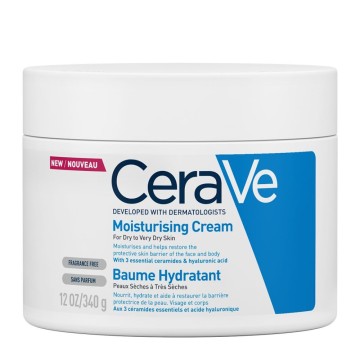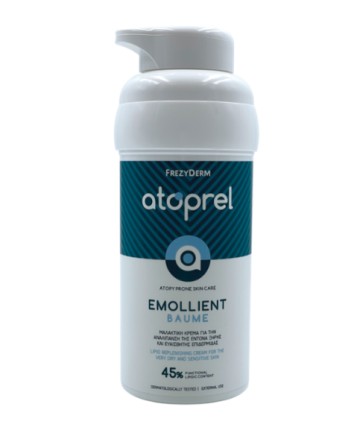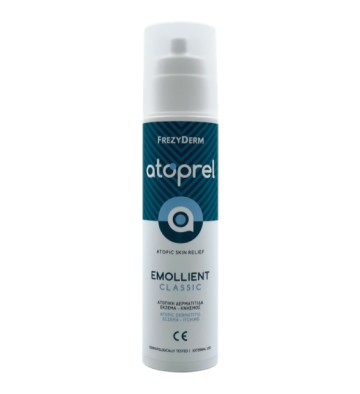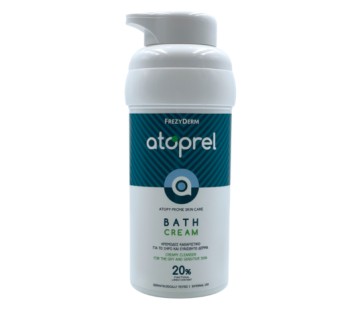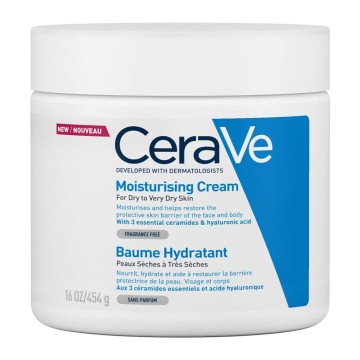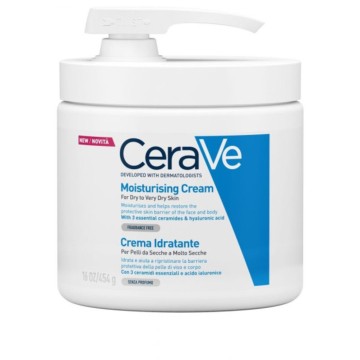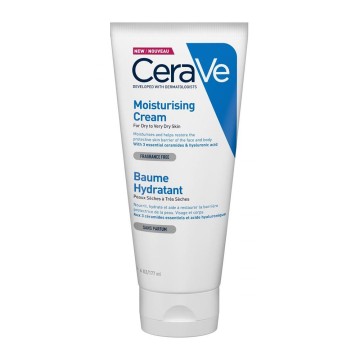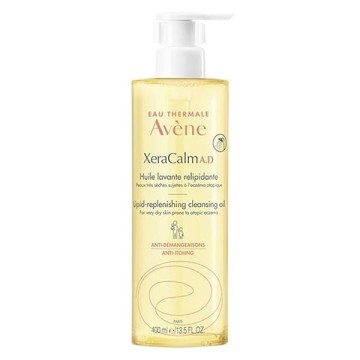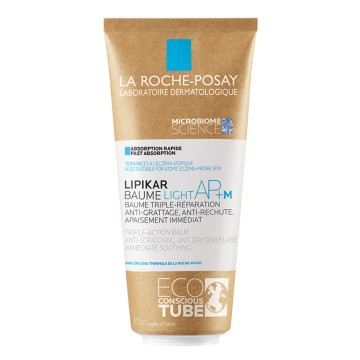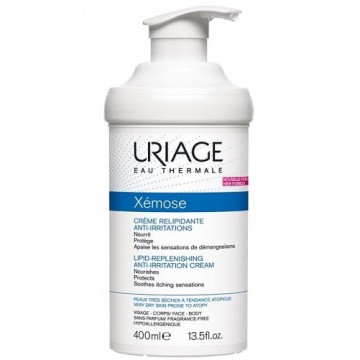What is eczema?
The
eczema is a skin condition that makes the skin look dry while at the same time
causes itching. This is because the skin's natural defenses are affected, i.e. its ability to retain moisture and protect against harmful agents such as germs. It is quite common and is not spread from person to person. Touching something that irritates or causes an allergy can make eczema symptoms worse. Although there is no complete cure, there are ways to manage and reduce symptoms.
Types of eczema
There are different types of eczema, each with its own characteristics and causes. You may experience more than one type of eczema at the same time. Let's look at them more simply:
Atopic dermatitis: The term "
eczema" is often referred to
atopic dermatitis, which is its most common form. It is a condition that is often associated with other allergic disorders such as asthma and hay fever and can appear from an early age.
Contact dermatitis:Η
contact dermatitis is a common skin reaction that occurs when our skin reacts to something it touches. It can cause irritation or allergy and it happens to almost all of us at some point. There are
two main types:
- Irritant Dermatitis: It is the most common form and occurs when the skin is irritated by something, such as soaps, cosmetics, nickel jewelry, or industrial chemicals. If you already have atopic dermatitis, you may be more vulnerable.
- Allergic Dermatitis: This happens when the skin reacts to something it is on allergic, such as certain metals (eg nickel), perfumed products, latex, or even sunlight.
Dyshidrosis eczema: The
dyshidrotic eczema it is a rare and more difficult case of eczema. It causes the formation of a lot
small blisters on the palms, soles and sides of the fingers. It may appear
due to sweat or contact with irritants such as metals.
Neurodermatitis: Η
neurodermatitis is a type of eczema that usually causes severe itching in one or two specific areas, such as the back of the neck, an arm or a leg. It can occur if you have another type of eczema, very dry skin, or due to certain mental health problems such as anxiety and obsessive-compulsive disorder. Women aged 30 to 50 are more likely to experience this problem.
Numerical eczema: The
numerical eczema is a type of skin rash that looks like
currency and usually occurs after an injury to the skin, such as a burn or an insect bite. If you or someone in your family has a history of atopic dermatitis, allergies or asthma, you are more likely to develop this type of eczema.
Seborrheic dermatitis: Η
seborrheic dermatitis is a condition that causes irritation in many areas of the skin
sebaceous glands, such as areas that produce more sebum (fat). A common example is the
dandruff, which appears on the scalp. The places where the rashes appear are as follows:
- Face
- Eyebrows
- Ears
- Skull
- Eyelashes
- Armpits
- Genitals
Eczema symptoms
When someone has
eczema, his skin may show the following
symptoms:
- Dryness
- Itch
- Redness and rashes
- Small pimples
- Thick or hard spots
- Scaly or crusted skin
- Swelling in some areas
Where do eczema symptoms appear on my body?
Often, the rash spreads to areas such as the face, behind the knees, wrists, hands and feet.
The skin becomes very dry, thick or flaky. In fair skin, these areas may redden and then darken. In dark skins, the
eczema can change the color of the area, making it lighter.
Flare-ups of the rash can last from
a few days to weeks. It can appear on different parts of the skin. Typically, we see:
- Eczema on hands
- Eczema on the face (especially on the cheeks)
- Eczema on the leg
- Eczema on throat
- Eczema on the lips
More rarely, the
eczema it can also appear in more sensitive areas such as:
- Nipples and breasts
- Aspects of the skin close to vagina or penis
Wherever it occurs, eczema usually causes
redness,
itchAnd
dryness of the skin.
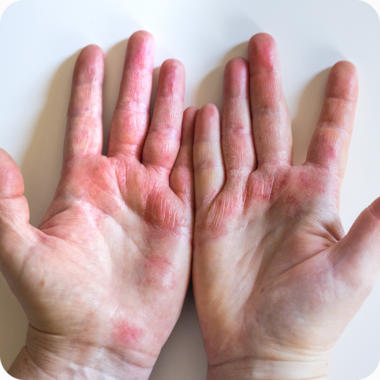
Symptoms in children
Usually, the
children and teenagers they may have one
skin rash on the insides of the elbows, behind the knees, on the neck or on the wrists and ankles. This rash may become red, scaly, and dry.
Symptoms in infants
The
infants they may develop a kind of itchy, crusty rash,
mainly on the face and head, but also on the arms, legs, back and chest. These symptoms may appear on
first weeks or months of their lives.
Causes of eczema
The reasons one can develop
eczema they are not entirely clear, but there are some
factors which seem to increase the likelihood. These include:
- His reaction immune system to irritants or allergens
- Skin problems which allow moisture and germs to penetrate
- record other allergies or asthma in the family
What causes eczema to flare up?
The
eczema it affects everyone differently. What aggravates one person's symptoms may not affect another. The
more common factors that they can cause
eczema is:
- Dry air, especially in a cold climate
- Cosmetics or care products skin
- Soaps and cleaners
- Cigarette smoke and other pollutants
- Stress and other emotional issues
- Direct contact with allergens
- Some materials in clothes what are you wearing
- Infections or colds
Are there foods that cause eczema?
The relationship between eczema and
food allergies is not always clear. If you have allergies to certain foods, such as peanuts, dairy or eggs, these may cause or worsen
eczema. Watch what you eat and if you notice that your eczema gets worse after eating a certain food, it could be because you are allergic to it. If you haven't
food allergies, then there are usually no foods that affect the
eczema.
Is eczema an autoimmune disease and contagious?
While the
eczema may cause your immune system to overreact,
it is not classified as an autoimmune condition and
it is not transmitted by contact from human to human.
I have eczema what should I do?
For
treatment of eczema your approach depends on your needs and the causes of the situation. You can follow these steps:
- Use moisturizers where is mild and appropriate for sensitive skin
- Take medicines such as anti-inflammatories, antihistamines or corticosteroids, to reduce itching and swelling (after specialist recommendation)
- They may be introduced to you immunosuppressive drugs to help the control of immune system function.
- Η light therapy can improve the appearance of the skin and treat blemishes.
- Avoid irritants or allergens that cause or worsen symptoms
Proper care and working with your doctor is critical to treating eczema effectively.
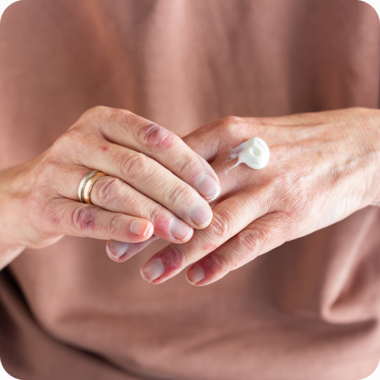
Eczema flare prevention
To catch it
eczema, try the following:
- Avoid substances that irritate the skin or cause allergies.
- Wear comfortable clothes of cotton, and wash new clothes before wearing them.
- Moisturize the skin often especially after bathing or showering
- Drink enough water every day to stay hydrated.
- Prefer the bath with lukewarm to hot water instead of hot.
- Cope with anxiety and stress with the help of an expert.
Does the weather make eczema worse?
Yes, some
weather conditions or temperatures can do it
eczema worse. For example, the
dry climate of winter can cause
dehydration on the skin, while the summer heat can cause
sweat which bothers and causes itching.
Related products at
wecare.gr to treat eczema
Sources: 1.
Eczema, 2.
Eczema: Symptoms, Causes, Treatment, 3.
What Are the 8 Different Types of Eczema?, 4.
How can I prevent eczema flare-ups?













